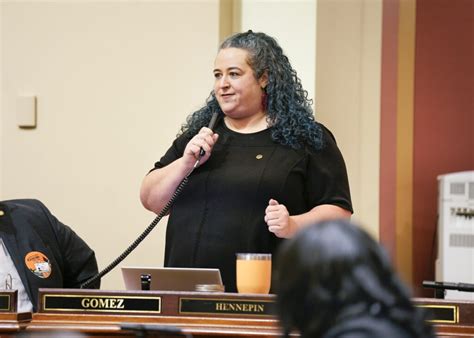
U.S. Senator J.D. Vance (R-OH) is facing criticism after appearing to threaten a British menswear critic with deportation following critical remarks made online about Vance’s attire. The incident, stemming from comments by Derek Guy, a menswear enthusiast known for his fashion critiques on social media, has ignited a debate regarding the boundaries of political discourse and the use of deportation threats.
The controversy began when Guy posted on X (formerly Twitter) questioning Vance’s style, specifically referencing an outfit the senator wore during a recent television appearance. These sartorial critiques escalated, leading Vance to respond directly, suggesting Guy should be deported. “Maybe we should deport this guy,” Vance posted on X.
The exchange quickly went viral, drawing condemnation from various quarters, including political commentators, civil rights advocates, and social media users who viewed Vance’s response as an inappropriate and potentially dangerous overreaction to criticism. Critics argue that invoking deportation in response to personal attacks normalizes the use of governmental power to silence dissent and chills free speech.
“The implication that someone should be deported for criticizing a politician’s clothing is deeply troubling,” stated a representative from the American Civil Liberties Union (ACLU). “It sets a dangerous precedent and undermines the principles of free expression.”
Vance’s office has not yet released an official statement clarifying the senator’s remarks or addressing the widespread criticism. However, sources close to Vance suggest that the senator’s comment was intended as a sarcastic retort rather than a genuine threat. This explanation has done little to quell the controversy.
Derek Guy, who is reportedly living and working in the United States on a valid visa, has responded to the senator’s remarks, stating that he found the threat “disconcerting” but remained undeterred in offering his opinions. “I believe in the importance of holding public figures accountable, even on matters of style,” Guy said in a statement. “Senator Vance’s reaction is a worrying sign of intolerance towards dissenting voices.”
The incident has sparked a broader conversation about the increasing polarization of political discourse and the role of social media in amplifying personal attacks. Experts warn that such exchanges can have a chilling effect on public debate and undermine democratic values.
Political analysts note that Vance’s response reflects a broader trend among some politicians to use aggressive rhetoric and personal attacks in their interactions with critics. This approach, they argue, can further divide the electorate and make constructive dialogue more difficult.
The incident involving Senator Vance and Derek Guy underscores the sensitivity surrounding immigration issues and the potential for political rhetoric to be interpreted as a direct threat. It also highlights the importance of responsible communication in the digital age and the need for public figures to exercise caution when engaging with critics on social media.
Background on J.D. Vance
J.D. Vance, a Republican, represents the state of Ohio in the United States Senate. Prior to his political career, Vance gained prominence as the author of “Hillbilly Elegy,” a memoir that chronicled his upbringing in the Appalachian region and offered insights into the social and economic challenges faced by working-class Americans.
Since entering the political arena, Vance has become known for his conservative views and his outspoken advocacy for policies aimed at supporting American manufacturing and protecting national interests. He has also been a vocal critic of globalization and what he sees as the negative impacts of free trade on American workers.
Vance’s political positions align with the populist wing of the Republican Party, and he has been a staunch supporter of former President Donald Trump. His election to the Senate in 2022 was seen as a major victory for the conservative movement.
However, Vance’s political career has also been marked by controversy. He has faced criticism for his past statements on various issues, including immigration, foreign policy, and social justice. His recent exchange with Derek Guy has added to the scrutiny surrounding his public persona and his approach to political discourse.
Background on Derek Guy
Derek Guy is a menswear enthusiast and social media personality known for his commentary on fashion and style. He has gained a following for his detailed analyses of clothing and his candid critiques of public figures’ sartorial choices.
Guy’s expertise in menswear has led him to contribute to various publications and websites, where he shares his insights on fashion trends, styling tips, and the history of clothing. He is also active on social media platforms such as X and Instagram, where he engages with his followers and offers daily doses of style inspiration.
Guy’s approach to fashion commentary is often humorous and irreverent, but he is also known for his deep knowledge of the subject matter and his ability to articulate complex ideas in a clear and accessible way. His critiques are often aimed at promoting thoughtful consumption and encouraging people to express their individuality through clothing.
While Guy’s comments on Senator Vance’s attire were relatively mild, they touched a nerve and prompted an unexpected response from the senator. The ensuing controversy has thrust Guy into the spotlight and raised questions about the role of fashion criticism in the political sphere.
Legal and Ethical Implications
The incident involving Senator Vance and Derek Guy raises a number of legal and ethical considerations.
From a legal standpoint, the question is whether Vance’s statement could be construed as a threat or an attempt to intimidate a critic. While deportation is a legal process, invoking it in response to personal criticism could be seen as an abuse of power, especially given Vance’s position as a U.S. Senator.
Additionally, the First Amendment of the United States Constitution protects freedom of speech, including the right to criticize public figures. While this right is not absolute, it does provide a significant degree of protection for individuals who express their opinions on matters of public concern.
From an ethical standpoint, the incident raises questions about the responsibilities of public figures in their interactions with critics. Should elected officials be held to a higher standard of conduct? Should they refrain from making personal attacks or threats?
Some argue that Vance’s response was disproportionate to the nature of Guy’s comments and that it reflects a lack of respect for the principles of free speech. Others may argue that Vance was simply defending himself against personal attacks and that his comments should be interpreted as a form of political rhetoric.
Ultimately, the legal and ethical implications of the incident will depend on how it is interpreted by the public and by legal experts. However, the incident serves as a reminder of the importance of responsible communication in the digital age and the need for public figures to exercise caution when engaging with critics.
The Broader Context of Political Discourse
The incident involving Senator Vance and Derek Guy is part of a broader trend of increasingly polarized and contentious political discourse in the United States.
In recent years, political debates have become more personal and more divisive, with personal attacks and name-calling becoming increasingly common. This trend has been fueled by the rise of social media, which allows individuals to express their opinions quickly and easily, often without the filters and safeguards that are typically present in traditional media.
The increasing polarization of political discourse has had a number of negative consequences. It has made it more difficult to find common ground on important issues, it has discouraged people from engaging in political debate, and it has contributed to a decline in trust in government and other institutions.
Some experts believe that the key to improving the quality of political discourse is to promote greater civility and respect. They argue that elected officials and other public figures should be held to a higher standard of conduct and that individuals should be encouraged to engage in respectful dialogue, even when they disagree.
Others believe that the problem is more systemic and that it requires addressing the underlying economic and social factors that contribute to political polarization. They argue that policies that promote economic equality, social justice, and educational opportunity can help to reduce the level of anger and resentment that fuels political division.
Whatever the solution, it is clear that the current state of political discourse is unsustainable and that steps must be taken to improve the quality of public debate. The incident involving Senator Vance and Derek Guy serves as a reminder of the importance of this challenge.
The Role of Social Media
Social media played a significant role in the incident involving Senator Vance and Derek Guy. Guy’s initial comments about Vance’s attire were posted on X (formerly Twitter), and Vance’s response was also delivered via the same platform. The exchange quickly went viral, spreading across various social media channels and attracting widespread attention.
Social media has become an increasingly important tool for political communication, allowing politicians to connect directly with their constituents and to bypass traditional media outlets. However, social media also has its downsides. It can be a breeding ground for misinformation and hate speech, and it can amplify personal attacks and other forms of negative campaigning.
In the case of Senator Vance and Derek Guy, social media provided a platform for a relatively minor disagreement to escalate into a major controversy. The speed and reach of social media allowed the exchange to be amplified and disseminated to a wide audience, magnifying the impact of Vance’s comments.
Some experts believe that social media companies have a responsibility to moderate content and to prevent the spread of misinformation and hate speech. Others argue that social media platforms should be treated as neutral carriers of information and that individuals should be responsible for their own online behavior.
Whatever the solution, it is clear that social media is a powerful force in modern politics and that it can have a significant impact on political discourse. The incident involving Senator Vance and Derek Guy serves as a reminder of the challenges and opportunities that social media presents.
Potential Repercussions for Senator Vance
The controversy surrounding Senator Vance’s remarks could have several potential repercussions for his political career.
First, it could damage his reputation and make it more difficult for him to build relationships with colleagues in the Senate. His comments have been widely criticized as being inappropriate and unprofessional, and they could lead some to question his judgment and temperament.
Second, it could energize his political opponents and make it more difficult for him to win re-election. His remarks could be used against him in future campaigns, and they could alienate some voters who might otherwise have supported him.
Third, it could lead to calls for him to resign or face disciplinary action. While it is unlikely that he will be forced to leave office, the controversy could put him under increased scrutiny and make it more difficult for him to be effective as a senator.
Ultimately, the long-term impact of the incident on Senator Vance’s political career will depend on how he responds to the criticism and whether he is able to repair the damage to his reputation. However, the controversy serves as a reminder of the importance of responsible communication and the potential consequences of making inappropriate or threatening remarks.
Potential Implications for Free Speech
The incident involving Senator Vance and Derek Guy raises important questions about the limits of free speech and the responsibilities of public figures.
While the First Amendment protects freedom of speech, this right is not absolute. There are certain categories of speech that are not protected, such as incitement to violence, defamation, and threats.
In the case of Senator Vance’s remarks, the question is whether his statement could be construed as a threat or an attempt to intimidate a critic. If so, it could potentially fall outside the protection of the First Amendment.
However, even if Vance’s remarks are protected by the First Amendment, there is still a question of whether they were appropriate or responsible. Some argue that elected officials have a responsibility to be more careful with their words and to avoid making statements that could be interpreted as threats or intimidation.
The incident also raises questions about the role of social media in promoting free speech. While social media platforms can be valuable tools for expressing opinions and engaging in political debate, they can also be used to spread misinformation and hate speech.
Some argue that social media companies have a responsibility to moderate content and to prevent the spread of harmful speech. Others argue that social media platforms should be treated as neutral carriers of information and that individuals should be responsible for their own online behavior.
Ultimately, the implications of the incident for free speech will depend on how it is interpreted by the courts and by the public. However, the incident serves as a reminder of the importance of protecting free speech while also promoting responsible communication.
FAQ Section:
1. What exactly did J.D. Vance say to Derek Guy that caused the controversy?
J.D. Vance responded to Derek Guy’s critiques of his attire on X (formerly Twitter) by suggesting, “Maybe we should deport this guy.” This statement, given Vance’s position as a U.S. Senator, was interpreted by many as a threat to use his political influence to have Guy deported. The perceived threat stemmed from the power dynamic and the potential implications of a senator targeting an individual, even in jest.
2. Is Derek Guy actually facing deportation?
As of now, there is no indication that Derek Guy is facing any actual deportation proceedings. He is reportedly living and working in the United States on a valid visa. Senator Vance’s comment is widely considered to be a sarcastic remark, though the potential implications and seriousness of the remark are still being debated. However, the perceived threat, regardless of its actual likelihood, has been the primary source of the controversy.
3. What has been the reaction from other politicians and organizations?
The reaction has been largely critical, with many politicians, civil rights organizations like the ACLU, and commentators condemning Vance’s remarks as inappropriate and a potential abuse of power. Some have argued that such statements chill free speech and set a dangerous precedent for government officials using their positions to target critics. Specific quotes from organizations or politicians condemning the action have been widely circulated.
4. What is the background of the feud between Vance and Guy?
The “feud” began with Derek Guy, a menswear enthusiast and critic, posting comments on X questioning J.D. Vance’s fashion choices, particularly an outfit Vance wore during a television appearance. These critiques escalated, leading Vance to respond with the controversial deportation comment. The “feud” is primarily a one-sided exchange, with Guy offering sartorial criticisms and Vance responding with a seemingly disproportionate reaction.
5. What legal or ethical considerations are involved in this situation?
From a legal standpoint, the question is whether Vance’s statement constitutes a threat or an attempt to intimidate a critic, which could potentially violate the First Amendment’s protection of free speech. Ethically, the situation raises questions about the responsibilities of public figures to maintain a higher standard of conduct and avoid using their position to target or silence critics, even if those criticisms are perceived as personal attacks. The ethical implications of a powerful figure making statements that could be interpreted as threats are significant and have generated substantial debate.









